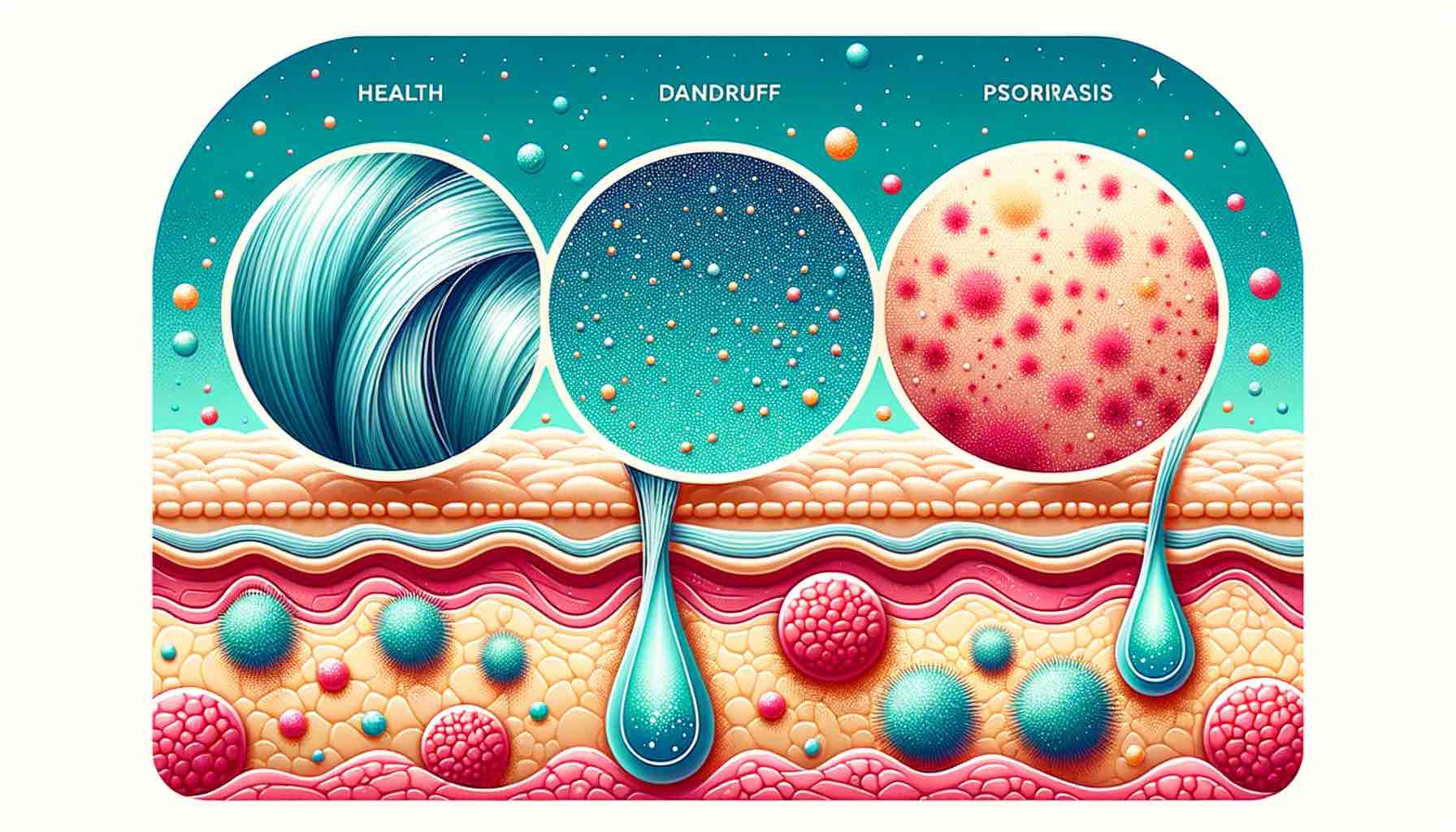
Introduction to Salicylic Acid and Its Role in Skincare
Salicylic acid, a prominent figure in skincare, is renowned for its powerful exfoliating properties and effectiveness against various skin issues such as acne and psoriasis. As a keratolytic medication, salicylic acid excels in shedding the skin’s outer layer, promoting the regeneration of new skin cells, and offering deep exfoliation by penetrating into the skin’s pores.
Salicylic Acid and Eczema: An Overview
Eczema, characterized by inflamed, itchy, and often cracked skin, presents a unique landscape where the role of salicylic acid is both intriguing and complex. Eczema sufferers navigate through a myriad of triggers, from environmental factors to dietary influences, each playing a role in the condition’s manifestation and management.
In this realm, salicylic acid emerges as a potential companion, offering its exfoliating benefits to manage dead skin cell accumulation, a frequent occurrence in eczema-prone skin. Its role in facilitating the removal of the outer skin layer may contribute to managing the dryness and scaliness often associated with eczema. For a deeper exploration of eczema’s underlying causes and coping strategies, consider reading this detailed discussion.
The Benefits of Salicylic Acid in Managing Eczema
Salicylic acid brings forth a spectrum of benefits in the context of eczema management. Its exfoliating capabilities are instrumental in reducing dead skin cell buildup, unveiling fresher and more vibrant skin layers beneath the surface.
- Exfoliation: Salicylic acid is proficient in mitigating the accumulation of dead skin cells, unveiling a fresher skin layer and improving overall skin texture and appearance.
- Soothing Properties: Beyond exfoliation, salicylic acid also embodies soothing properties, offering relief to inflamed and irritated skin, a common symptom of eczema.
- Deep Penetration: Its ability to delve deep into the skin’s layers allows for a more profound level of relief, tackling inflammation and redness effectively.
Navigating through eczema’s complexities often involves exploring various facets, including dietary influences. Insights into the relationship between nuts and eczema can be particularly enlightening, offering a broader perspective on managing eczema symptoms.
Potential Risks and Considerations
Navigating the use of salicylic acid in the context of eczema involves a careful consideration of its potential risks and side effects. While it brings a host of benefits, such as exfoliation and soothing inflamed skin, it’s essential to approach its usage with caution and awareness.
- Skin Irritation: Salicylic acid, while beneficial, can sometimes lead to skin irritation, especially in individuals with sensitive or eczema-prone skin. It’s crucial to monitor the skin’s response and discontinue use if excessive irritation occurs.
- Dryness and Peeling: As an exfoliant, salicylic acid promotes the shedding of dead skin cells. However, this can sometimes lead to dryness and peeling, which might exacerbate eczema symptoms in some cases.
- Consultation with a Dermatologist: Before incorporating salicylic acid into your eczema management routine, seeking advice from a dermatologist is advisable. A professional can provide tailored guidance based on your skin’s specific needs and condition.
How to Use Salicylic Acid for Eczema
The application of salicylic acid in managing eczema requires a thoughtful and personalized approach. Here are some guidelines to consider:
- Patch Test: Always conduct a patch test before applying salicylic acid to larger skin areas. This step helps in identifying any adverse reactions beforehand.
- Product Selection: Choose products that are formulated with suitable concentrations of salicylic acid, keeping in mind the sensitivity of eczema-prone skin.
- Frequency of Use: Based on your skin’s tolerance and the product formulation, determine an appropriate frequency of application. Avoid overuse to prevent skin irritation.
- Combination with Other Ingredients: Consider the compatibility of salicylic acid with other ingredients in your skincare routine. Ensure that the combined use of products doesn’t lead to excessive dryness or irritation.
For a broader perspective on managing eczema symptoms and understanding potential triggers, exploring resources such as this discussion on histamine intolerance and eczema can be quite insightful.
Expert Opinions and Recommendations
Incorporating expert opinions and dermatologist recommendations can enhance the effectiveness of your eczema management strategy. Dermatologists can offer valuable insights into the suitability of salicylic acid based on your skin’s unique needs and the specific characteristics of your eczema.
- Personalized Guidance: Dermatologists can provide personalized recommendations, ensuring that the use of salicylic acid aligns with your skin’s requirements and eczema type.
- Professional Insights: Expert opinions can offer a balanced perspective, helping you weigh the benefits against the potential risks associated with salicylic acid usage.
- Continuous Evaluation: Based on professional advice, continuously evaluate and adjust your skincare routine to align with your skin’s evolving needs and responses.
Exploring various aspects of eczema, such as the influence of dietary choices, can complement the insights gained from expert opinions, fostering a more holistic approach to managing eczema.
Conclusion and Final Thoughts
In the journey of managing eczema, salicylic acid presents itself as a multifaceted ally, equipped with the potential to exfoliate, soothe, and improve the condition of the skin. Its role, while potent, is nuanced, requiring a careful and individualized approach to harness its benefits effectively while navigating potential risks.
The exploration of salicylic acid in the context of eczema unveils a landscape where informed choices, personalized strategies, and continuous evaluation play pivotal roles. It encourages an approach where the understanding of one’s skin, consultation with dermatology experts, and a thoughtful incorporation of products and ingredients converge to foster skin health and well-being.
Further Reading and Resources
For a deeper dive into the realms of eczema management and the exploration of various influential factors, the following resources offer valuable insights:
- Eczema and Dermatitis: Causes and Coping Mechanisms
- Navigating the Dietary Maze: Nuts and Eczema
- Histamine Intolerance and Eczema: Unveiling the Connection
These resources aim to enrich your understanding, offering diverse perspectives and insights into managing eczema with a holistic and informed approach.
FAQs
- What is the role of salicylic acid in managing eczema? Salicylic acid acts as a powerful exfoliant, helping to remove dead skin cells and reduce inflammation, which can be particularly beneficial in managing eczema symptoms such as dryness and scaliness.
- How should salicylic acid be applied to eczema-prone skin? It’s essential to start with a patch test, followed by careful application according to the product instructions or dermatologist’s guidance, ensuring that it is suitable for your skin type and specific eczema condition.
- Can salicylic acid be used alongside other eczema treatments? Salicylic acid can be incorporated into a broader skincare routine, but it’s crucial to consider its compatibility with other ingredients and treatments to avoid potential irritation or adverse reactions.
- What precautions should be taken when using salicylic acid for eczema? Always consider the concentration of salicylic acid in the product, conduct patch tests to gauge skin tolerance, and seek professional guidance to ensure its appropriate and safe usage.
- Is salicylic acid suitable for all types of eczema? The suitability of salicylic acid can vary based on the specific type and severity of eczema. Consulting a dermatologist can provide tailored advice based on individual skin needs.
- How does salicylic acid interact with the skin’s natural barrier? Salicylic acid helps in exfoliation and can enhance the skin’s ability to retain moisture, but it’s also essential to monitor the skin’s response to ensure that it doesn’t lead to excessive dryness or irritation.
- Can salicylic acid be used for facial eczema? Salicylic acid can be used on the face, but due to the facial skin’s sensitivity, it’s advisable to choose products formulated for facial use and to apply them with caution.
- What are some common side effects of using salicylic acid on eczema-prone skin? Some common side effects include skin irritation, dryness, and peeling. It’s essential to monitor the skin’s response and adjust the usage based on individual tolerance.
- How does salicylic acid compare to other exfoliating agents in managing eczema? Salicylic acid offers unique benefits as a beta hydroxy acid, but its effectiveness compared to other exfoliants can depend on individual skin responses and the specific characteristics of the eczema condition.
- Where can I find more resources and expert opinions on using salicylic acid for eczema? Various online resources offer insights into salicylic acid’s usage, including dermatologist opinions and scientific research. Additionally, consulting a dermatologist can provide personalized advice and recommendations.
Blog Tags
salicylic acid, eczema, skincare, dermatitis, exfoliation, skin irritation, dermatology, sensitive skin, skincare routine, inflammation













